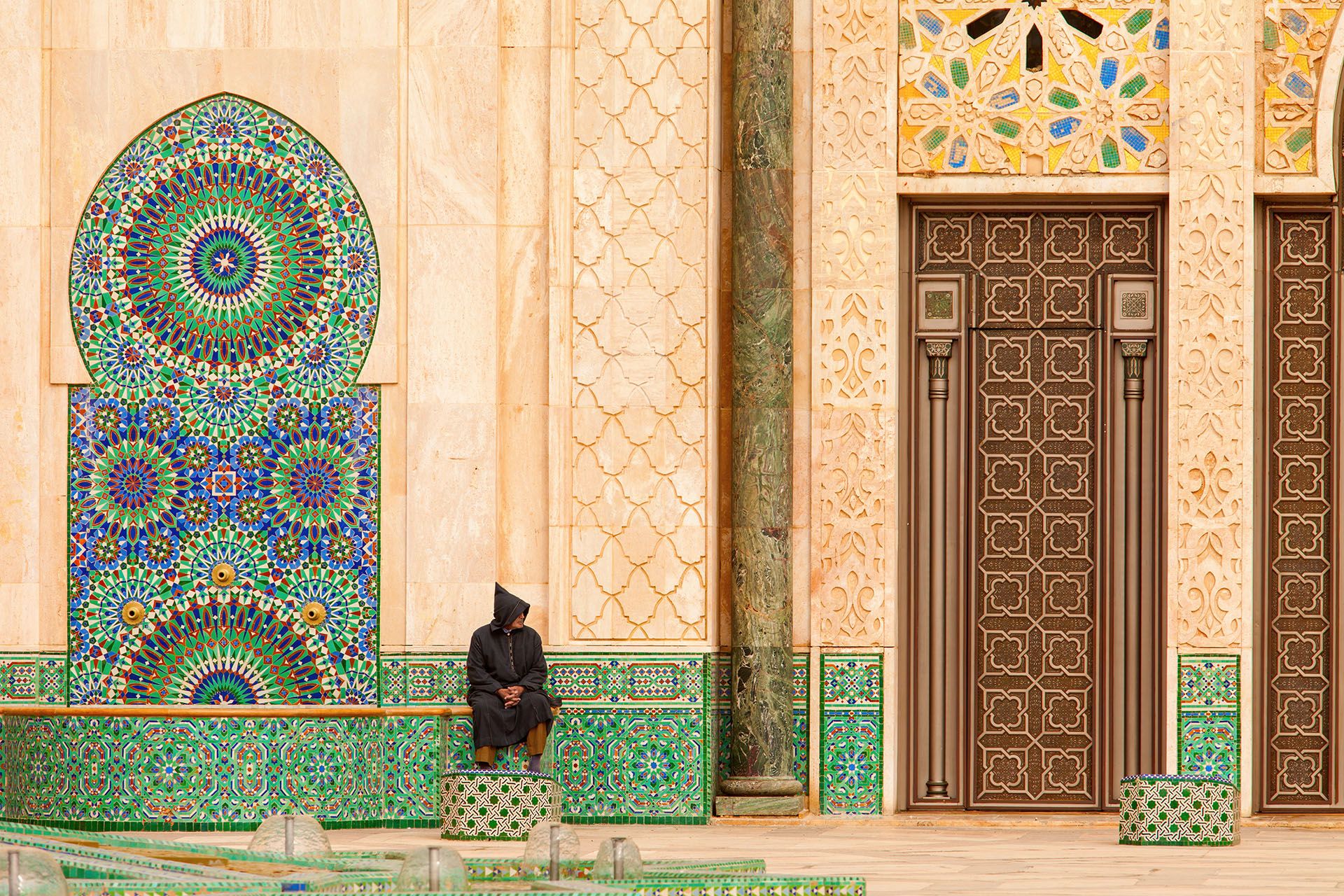Travel advice for Morocco
From travel safety to visa requirements, discover the best tips for visiting Morocco
Morocco isn’t massive, but getting from A to B can still be a bit of an adventure. From air-conditioned high-speed trains to hair-raising taxi rides, there’s a whole range of ways to travel — and each comes with its own quirks. Some are fast, some are scenic, and some will test your nerves (we’re looking at you, mountain buses).
The good news? It’s easy to mix and match. Trains cover the big cities, buses reach the smaller towns, and if you’re headed deep into the desert or the Atlas Mountains, a rental car or local guide might be your best bet. Here's what you need to know to navigate Morocco like a pro.
The best way to travel in Morocco depends on where you're going. Here are some options:

Morocco train © Milena Mijatovic/Shutterstock
If you're planning a trip to Morocco and want to keep things easy between the major cities, trains are your best bet. They're cheap, comfortable, and — on the newer lines — surprisingly modern.
The Al Boraq line runs between Tangier and Casablanca in just over two hours. It’s sleek, air-conditioned, and usually on time. Book online or at the station, and grab a seat in first class if you want extra legroom and fewer crowds.
Trains also link Casablanca with Rabat, Fez, Meknes, and Marrakesh. These aren’t high-speed, but they’re still a solid option. Expect decent seats, busy carriages, and the occasional delay.
Don’t bother looking for rail connections in the south — there aren’t any. If you’re headed to the Sahara, Chefchaouen, or the Atlas Mountains, you’ll need to switch to a bus or car.
Tips for the ride: Trains can get packed, especially during holidays and weekends. Reserve your seat in advance if you can. And don’t count on great station facilities — grab snacks and use the bathroom before you go.

The Hassan II Mosque or Grande Mosquée Hassan II in Casablanca © Shutterstock
Buses are only a bit cheaper than shared grand taxis and about thirty percent slower. However, they are safer and more comfortable.
Some older buses have limited legroom, which can be uncomfortable for taller passengers. Many long-distance buses run at night, making them quicker and cooler, but night buses have a higher accident rate, especially on busy routes.
Travel tips:
Most towns have a main bus station (gare routière), often on the town's edge.
CTM buses usually leave from their office, which might be far from the main station. Sometimes, CTM and private companies share a terminal, and CTM buses might stop at the main station when leaving a city, but not when arriving.

Curve serpentine winding road in Dades Gorge mountain canyon © Breslavtsev Oleg/Shutterstock
Renting a car in Morocco can cost about £250/$320 per week or £40/$55 a day, with a three-day minimum. This includes unlimited mileage and insurance. Renting a car is helpful if you're short on time, especially in the south where buses and taxis might be hard to find. Alternatively, you can hire a grand taxi for a daily rate, which isn't much more expensive.
Many people rent cars in Casablanca, Marrakesh, or Agadir. It might be cheaper to book in advance through your travel company. Some international car rental companies include:
It's best to book online before you arrive. Local rental firms might offer negotiable prices, but check the car's condition carefully. Many hotels can also help arrange rentals. If you prefer not to drive, you can hire a driver for about £32/$42 a day.
Driving in Morocco isn't too difficult, but be cautious. Many drivers ignore traffic rules and drive aggressively. Don't expect them to use turn signals or stay in their lanes. Be extra careful on blind curves or hills where other drivers might try to overtake without seeing the road ahead.
Roads are generally good, with long, straight stretches and little traffic between towns, allowing for fast travel.
You must be at least 21 to drive. EU, North American, and Australasian licenses are valid, but an International Driving License with French translations is recommended, especially if your license doesn't have a photo. Always carry your driving license and passport.
Note: Check for the latest travel advisories and transportation updates, as conditions may change.

Taxis in a Morocco © haraldmuc/Shutterstock
Shared grands taxis are a popular and fast way to travel. They are quicker than buses and sometimes even trains. Fares range from slightly more than bus fares to about double.
These taxis are usually large Peugeot or Mercedes cars that carry six passengers. They operate on specific routes with frequent departures.
It's harder to catch a shared taxi on the road since they only stop if they have a free seat. Hold up fingers to show how many seats you need.
Prices are fixed, and drivers usually don't overcharge tourists. If you think you're being overcharged, ask other passengers or check with your hotel beforehand.
Shared taxis can be risky due to speeding and overtaking on blind spots. Drivers often work long hours, increasing the risk of accidents, especially at night. It's best to avoid them for night travel on busy roads.
From travel safety to visa requirements, discover the best tips for visiting Morocco
Discover Morocco's most captivating stories